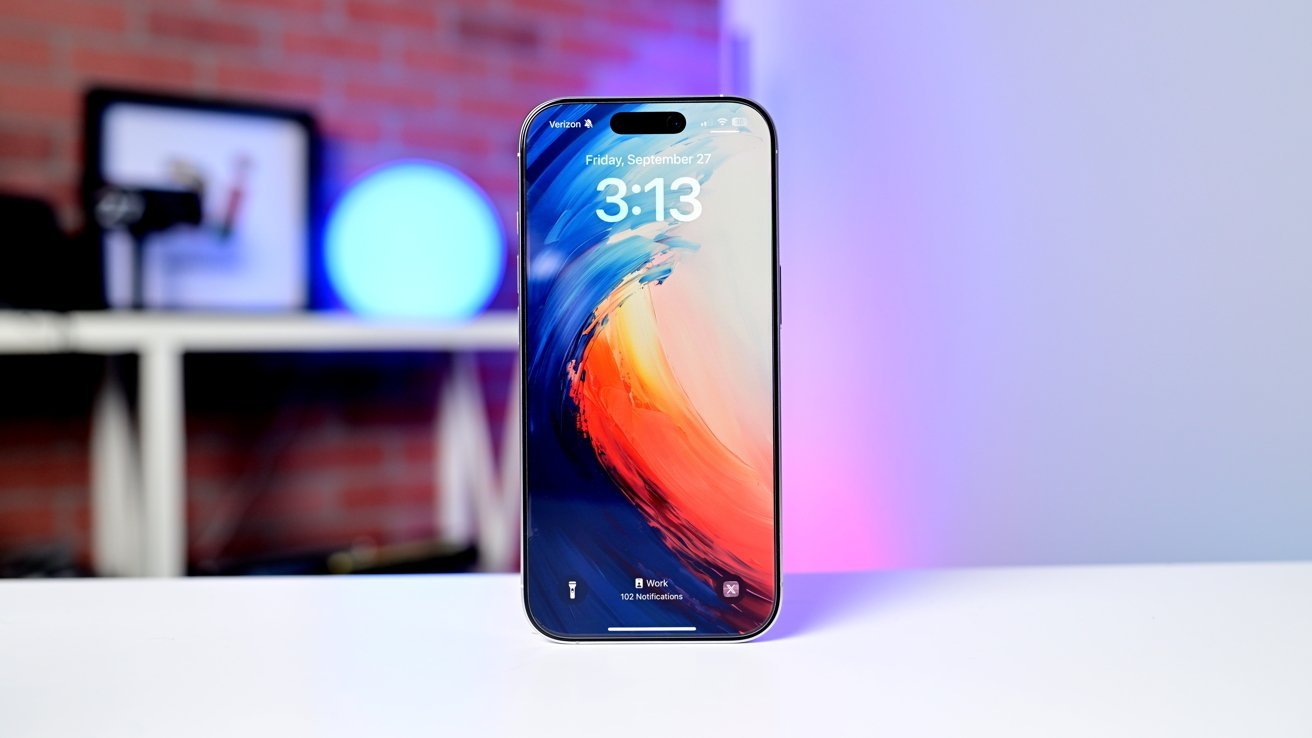No India tariff deal means Apple will face iPhone import fees eight times higher than befo...
The decade-long effort to shift U.S. iPhone manufacture out of China to India is going to become more expensive for Apple, just in time for iPhone 17 season.

Tariffs already affect iPhone imports into the U.S., and they're set to get even higher.
The Trump-instigated delay in applying high tariffs on imports into the United States is coming to an end on August 1. As countries work to make a trade deal with the White House, it seems that one country's lack of a deal could end up costing Apple customers dearly.
India has yet to complete an agreement with the United States on tariffs. If it fails to do so, it will have to shoulder tariffs valued between 20% and 25% on imports.
An audio clip of Trump talking to reporters shared by Aaron Rupar has the President confirming that no deal with India has been finalized, and the rate will be 25%. He also accuses India of charging more tariffs than "almost any other country."
This will be a considerable increase on the current 10% import tariff applied against the country as of the latest exceptions pending a trade deal.
That 10% tariff is also high compared to the 3% tariff Apple paid on iPhone imports from India to the U.S. before President Donald Trump began making tariff changes.
A high-priced iPhone change
The lack of a deal at deadline time will be something that hits Apple quite hard. Especially considering it deals with sales of iPhones it its home country.
The tariff increase will be something that is too high for Apple to easily absorb into the overall cost of an iPhone. Instead, when the iPhone 17 generation arrives in September, that could mean an equally high rise in prices.
This is still a considerable saving versus the tariff applied on Chinese goods, which would be hit by a 55% tariff. If Apple hadn't shifted where it was supplying U.S. iPhones from to tackle tariff costs, the price rises would be considerably higher again.
A future fix
While the lack of a trade deal with India is a problem for Apple, it's one that may only be temporary. An Indian government official told Reuters that talks are progressing, and could end up with a trade deal, albeit after the deadline.
A trade delegation from the United States is planned to visit New Delhi in the middle of August. The intention is to resume the trade negotiations then, and finalize a bilateral agreement by September or October.
Given that Apple has to import iPhones into the U.S. to sell them ahead of the iPhone 17's launch, it may arrive too late for consumers to benefit from.
Read on AppleInsider

Comments
The question is how up-front Apple should be about featuring the effect of the tariffs on prices, particularly when the iPhone 17 is released. They would risk angering Trump, but I think they should make clear what the tariff markup is. They could be passive-aggressively subtle about it when they do the dog-and-pony-show announcement: "The iPhone 17 will have all these new features [after having described all the new features] and there will be no price increase from the iPhone 16, except in the United States, where it will increase by 40% [averaging the tariff rate for Chinese and Indian imports]."
Apple wouldn't have to utter the words tariff, or Trump, or TACO. The news media would explain it for them. Nobody at Apple would actually want news coverage and publicity around new product releases to be all about tariffs, but is there any way they could avoid it? Even if Apple decided to eat the tariffs and keep their US prices flat, that's going to be the story. First at the announcement, the story would be "Apple absorbs tariff costs," and again at the next quarterly earnings call, when Apple has to report a significant drop in profit, despite robust sales. The question would then be, how long can Apple afford to continue to do that?
Or, they could pass on the tariff to consumers and then that's the story, repeated again at the quarterly earnings report, when lower sales due to higher prices will be the reason for lower profit. I think this is the least worst option, because it's more transparent and puts the ball back in Trump's court. The reason prices are higher and profits are down is all due to the whims of one man. Unless he wants to continue hurting American consumers and American companies, he'll do the TACO thing and drop the tariffs. If he wants to distract from ... other things, o.k., but he is going to have to own that, too.
2. Do you own Apple shares?
If you answer no to either question, your opinions are worth about as much as a full presidential diaper.
And no, announcing you sent a letter to a country saying what tariffs the US will pay them on imports isn't the same as making a deal.